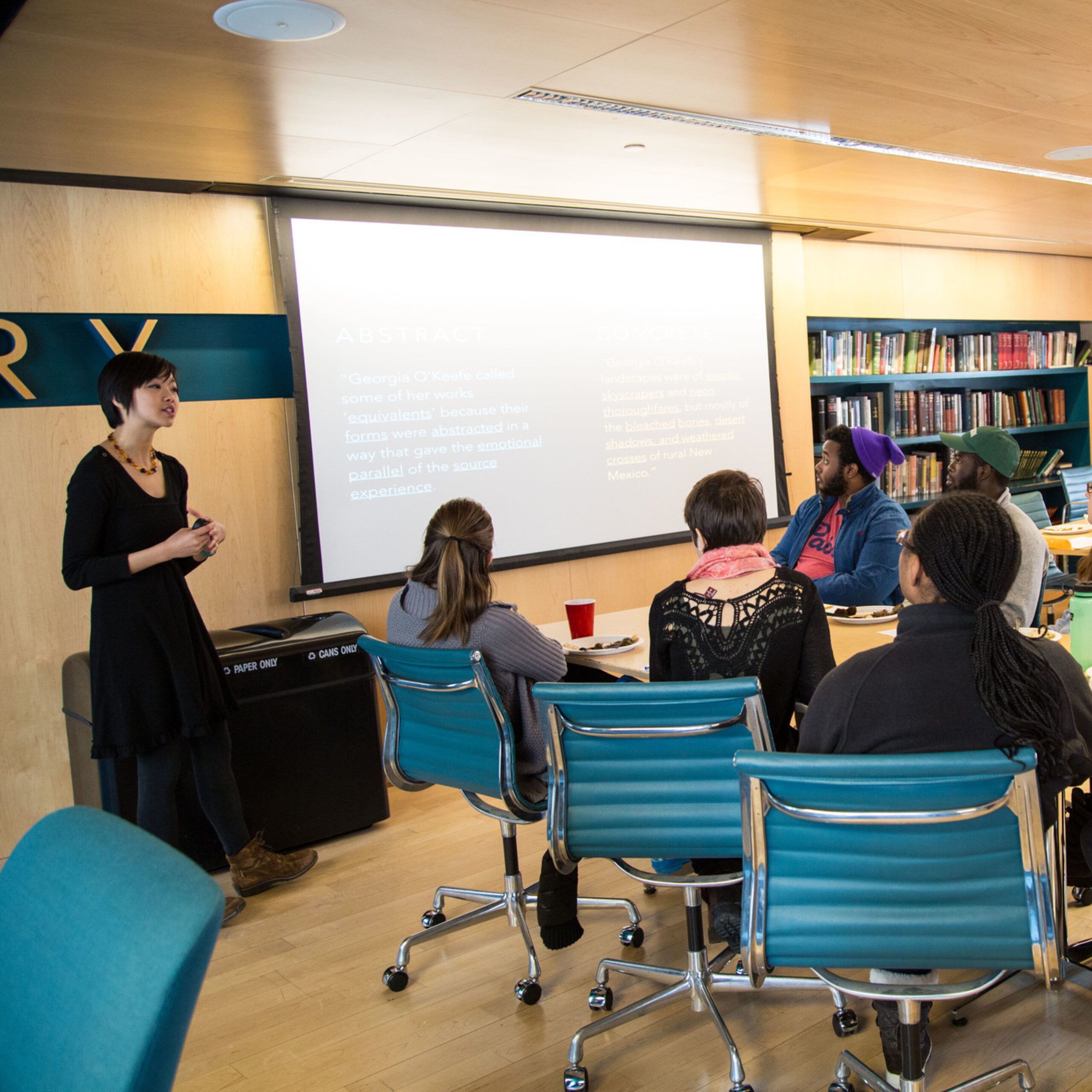Sharing the discoveries you’ve made is not just extremely rewarding, but a necessary part of the research process because it ensures your findings can be put to use. Writing about your research is a tough obstacle to tackle in and of itself, but what I want to focus on today is the arguably more intimidating half of sharing your research: speaking about it. Both formats require demonstrating your command of the subject while also being engaging. Unlike writing about your research, where you generally have a well-defined goal from the get-go, you will find yourself speaking about your research in an enormous range of contexts. Here are three of my tips for talking about your research, whether summarizing your findings for your grandma or giving a formal presentation to a group of experts.

- Be prepared for the question “Why did you choose this topic?”
Describing your passion for a subject you may have stumbled into by chance can be surprisingly difficult if you’ve never articulated it before. Because of this, my favorite way of beginning to describe my research is to start off with a story. Instead of jumping straight into your research question, take a few steps back and think about the steps that led to you choosing a particular topic. At some point, you were probably debating between a few different research questions. What conversation or interesting article gave you the final push towards a particular one?
The farther back you can go in your life when creating a tie to your interest in a topic, the better. Instead of saying that you chose to write about the myth of Narcissus because you read it in your favorite class this past semester, mention the book of myths you had in elementary school, and how Narcissus was always your favorite one, even though it scared you a little. The personal connection to your topic that you establish in this opening story will become a thread found in your problem, research question, and should eventually be tied up in your conclusion.
- A picture is worth a thousand words
Think back to your favorite lectures from this past semester. If I had to guess, your most engaging professors have probably been the ones to rely the least on powerpoint slides full of text. Nobody wants to be reading on a slide the same thing that you are saying out loud as you give a presentation. You are the key element in your research, and you are the one who is going to need to explain it —your slides shouldn’t be able to do it alone (because then you would just be writing a paper formatted in PowerPoint). Because of this, your slides should tell a story through pictures. Specific photographs are great, but simple vector drawings related to your topic are great as visual filler too. While this tip is especially useful for more formal presentations, pulling up a picture or two even when just describing your research casually can make it all the more engaging, no matter the audience.
- Remember that no one knows your research better than you
Part of why speaking about your research to others can be so intimidating is because you never know what questions they’re going to ask you in advance. Most of the time, people are just curious (NOT out to get you) and will be excited to hear any response you have to their questions. No matter how hard you may have worked on your speech, you should try and stay away from relying on memorized answers in a Q&A — chances are, you will be answering a slightly different question if you are able to use an answer that you planned in advance. Try and answer questions about your research like you would answer questions in a normal conversation. Research is such an involved and extensive process that by the time you are speaking about it, you will already know the ins and outs of your project like the back of your hand. And if there is a question that ever truly stumps you, it’s ok! Reply with a “I’ll have to look into that further,” and move on.
Good luck! I promise, it’s really not as scary as it sounds.
— Kate Weseley-Jones, Humanities Correspondent

